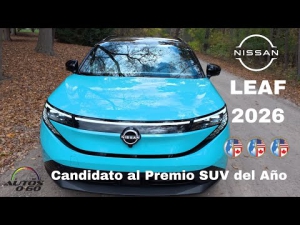Can the Nissan Leaf Still Compete Against Newer EVs?
In the EV market, the Nissan Leaf has been around for a long time, usually as an alternative to the more expensive Tesla. There are plenty more EV options on the market now, and they are quite affordable. Here’s a look at the Nissan Leaf and whether Nissan has improved it enough to compete with its peers.
A look at the 2022 Nissan Leaf
While automakers are introducing their own EVs, Nissan hasn’t been sitting idly by. As Car and Driver wrote, the 2022 Nissan Leaf has quite a few changes from before. Unlike many other companies, Nissan actually slashed the price tag of the Leaf. It now starts at just $28,000, and that’s before federal tax credits.
According to Car and Driver, that means that the Leaf is now about $4,000 to $6,000 cheaper than before, depending on the trim. Furthermore, the Leaf still qualifies for the $7,500 federal EV tax credit, making it quite affordable for many folks now. This isn’t the only update.
For the 2022 model year, Car and Driver said that the Leaf will now have access to Nissan’s semi-autonomous self-driving system. That system, called ProPilot Assist, is available on the SV Plus trim, which starts at about $36,000. Due to that low price tag, Nissan provides a relatively cheap way for folks to have access to semi-autonomous self-driving technology.
How the 2022 Nissan Leaf compares
Thanks to that major price cut, the Leaf is now the cheapest EV on the market. Eco-friendly customers on a budget have a clear choice for a new car. But of course, the Leaf isn’t perfect. According to Car and Driver, the regular Leaf only gets about 149 miles on a single charge. This can be upgraded to 226 miles by getting the Plus trim, but that’s still not great.
Compared to a Tesla Model 3, that’s a below-average range. The Model 3 starts at about $34,000 and gets about 263 miles on a single charge. According to Car and Driver, the Plus trim starts at about $33,000. So, for $1,000 more, customers can get almost 40 more miles of range. It’s a similar story with the Chevy Bolt. The Bolt costs about the same but gets more range than the Leaf Plus.
To be fair to the Leaf, neither Tesla nor Chevy are eligible for the federal EV tax credit. This means that, after adding in that tax credit, the Leaf will be significantly cheaper no matter what.
Can the Nissan Leaf compete?
Despite that range problem, money talks. The Leaf is still selling well because Nissan has essentially cornered the market for affordable EVs. The Leaf is far from the fastest EV, and it has a short-range, but it’s ultimately a practical and comfortable EV. As Car and Driver wrote, despite being the cheapest EV on the market, its interior is quite comfortable and doesn’t feel very cheap.
Despite being a relatively small car, the Leaf can actually carry quite a bit of cargo. Car and Driver said that it actually beat the Chevy Bolt in terms of cargo capacity. The Leaf also has quite a few features, such as an 8-inch touch screen and many smart safety features. For these reasons and more, the Leaf continues to sell well and competes with newer EVs.
RELATED: Autotrader Just Proved That the 2021 Nissan Leaf is Worth a Second Look
The post Can the Nissan Leaf Still Compete Against Newer EVs? appeared first on MotorBiscuit.







